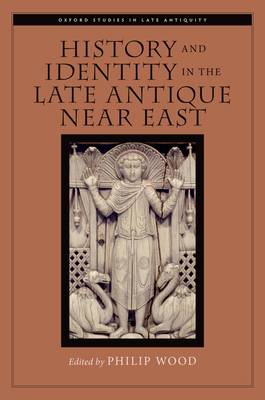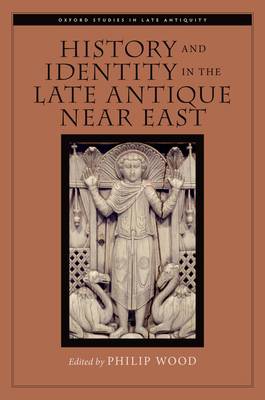
- Retrait gratuit dans votre magasin Club
- 7.000.000 titres dans notre catalogue
- Payer en toute sécurité
- Toujours un magasin près de chez vous
- Retrait gratuit dans votre magasin Club
- 7.000.0000 titres dans notre catalogue
- Payer en toute sécurité
- Toujours un magasin près de chez vous
History and Identity in the Late Antique Near East
241,95 €
+ 483 points
Description
History and Identity in the Late Antique Near East gathers together the work of distinguished historians and early career scholars with a broad range of expertise to investigate the significance of newly emerged, or recently resurrected, ethnic identities on the borders of the eastern Mediterranean world. It focuses on the "long late antiquity" from the eve of the Arab conquest of the Roman East to the formation of the Abbasid caliphate. The first half of the book offers papers on the Christian Orient on the cusp of the Islamic invasions. These papers discuss how Christians negotiated the end of Roman power, whether in the selective use of the patristic past to create confessional divisions or the emphasis of the shared philosophical legacy of the Greco-Roman world. The second half of the book considers Muslim attempts to negotiate the pasts of the conquered lands of the Near East, where the Christian histories of Hira or Egypt were used to create distinctive regional identities for Arab settlers. Like the first half, this section investigates the redeployment of a shared history, this time the historical imagination of the Qu'ran and the era of the first caliphs. All the papers in the volume bring together studies of the invention of the past across traditional divides between disciplines, placing the re-assessment of the past as a central feature of the long late antiquity. As a whole, History and Identity in the Late Antique Near East represents a distinctive contribution to recent writing on late antiquity, due to its cultural breadth, its interdisciplinary focus, and its novel definition of late antiquity itself.
Spécifications
Parties prenantes
- Editeur:
Contenu
- Nombre de pages :
- 272
- Langue:
- Anglais
- Collection :
Caractéristiques
- EAN:
- 9780199915408
- Date de parution :
- 01-04-13
- Format:
- Livre relié
- Format numérique:
- Genaaid
- Dimensions :
- 157 mm x 236 mm
- Poids :
- 476 g

Les avis
Nous publions uniquement les avis qui respectent les conditions requises. Consultez nos conditions pour les avis.





